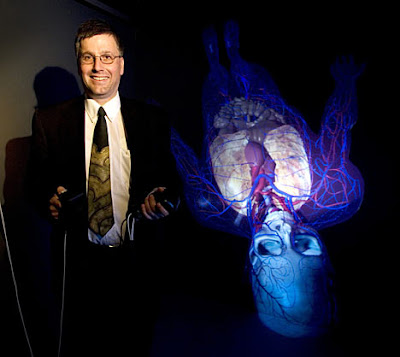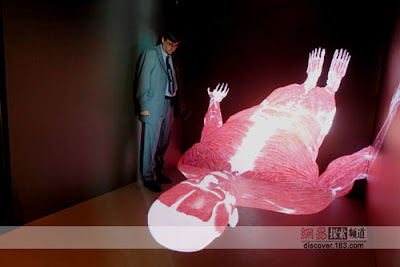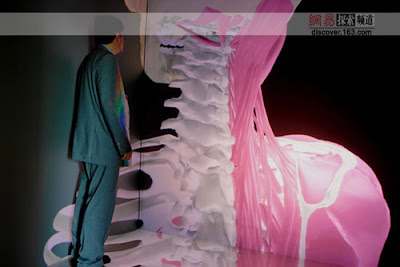 Using a so-called CAVEman to explore a patient's insides is the wave of the future, say University of Calgary medical researchers.
Using a so-called CAVEman to explore a patient's insides is the wave of the future, say University of Calgary medical researchers. After years of development, a model of the human body now lives in what the university calls a Cave Automated Virtual Reality Environment, said Dr. Grant Gall, dean of the faculty of medicine.
"This project is a major breakthrough," he said at yesterday's unveiling of their CAVEman, a project six years in the making.
At 10 times the resolution of similar models, the CAVEman was built using data from basic anatomy textbooks.
In the virtual-reality room, referred to as the "research holodeck," a human model floats in space, projected from three walls and the floor below.
The use of 3-D glasses makes the holographic image complete. With a click of a mouse, any part of the body can be localized and enlarged.
Since the system is time programmable, the doctor can follow the progress of a disease or healing. This is a tool that will be useful not only to researchers studying disease, but also to physicians exploring new pathways in surgical planning.
More images after the jump.



Source: University of Calgary via Cnews
Tags: Medicine | CAVEman | Virtual Reality
Comments